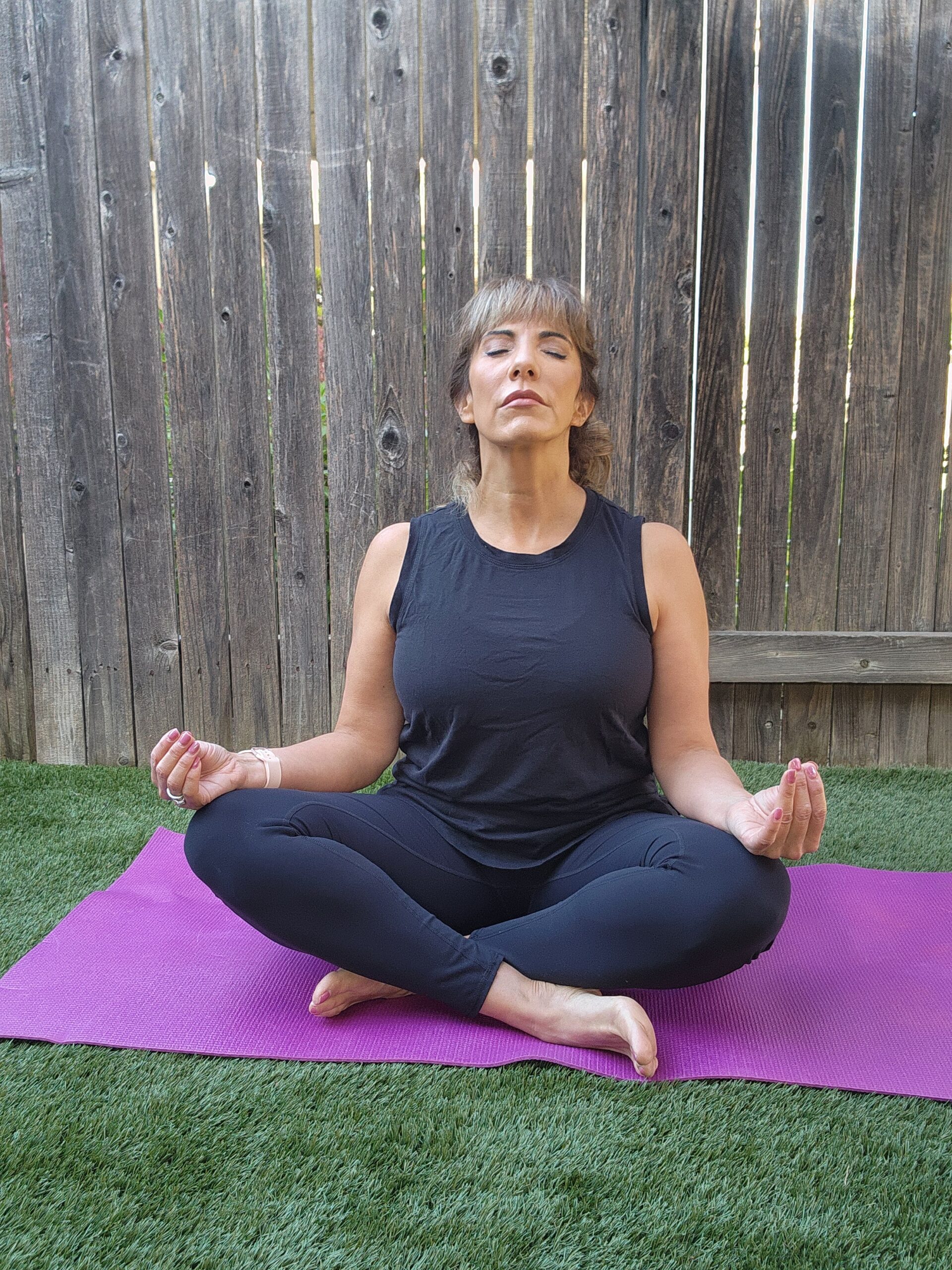Rejuvenating Your Menopause Journey: 9 Essential Tips
Rediscover Vitality and Joy During Menopause with These Practical Steps
Have you ever wished to turn back the clock and feel a decade younger? While we can't reverse time, we can certainly make adjustments to our daily routines that rejuvenate our bodies and minds. Today, I'm thrilled to share some insights that could revolutionize your experience with rejuvenating your menopause, helping you feel more like your vibrant self.
Expect to Discover:
In this discussion, I delve into practical tips for physical and emotional well-being during menopause. From the power of journaling to the refreshing benefits of stepping outside, you'll learn how to manage symptoms and boost your overall health in innovative, enjoyable ways.

Harnessing the Power of Journaling
Diving into our menopause journey, let's start with a tool that might seem simple yet is incredibly powerful journaling. Many might wonder how pen to paper can influence such a profound time in life. It's not merely about chronicling daily events but creating a space to vent, reflect, and understand the deeper rhythms of our emotions and physical states during menopause.
Imagine this: each day, dedicating just ten minutes to jot down thoughts, worries, and gratitude. This practice acts like a mental declutter, similar to tidying up a room, but it's the mind that's getting organized. Over time, journaling can reveal patterns—what triggers stress, what alleviates it, and how different phases of the menstrual cycle affect mood and physical symptoms. This awareness becomes a guide, helping to navigate the often unpredictable waters of menopause with greater ease and insight.
Journaling: More Than Words
But journaling offers more than just emotional release; it's a structured method to foster self-care and mindfulness. By consistently setting aside time to write, a commitment is made to self-awareness and care. It becomes a daily check-in, a personal barometer to measure and understand personal well-being. This isn't just beneficial for emotional health but is also a proactive approach to managing physical symptoms of menopause, such as sleep disturbances and hot flashes. Through journaling, many find they can better articulate their experiences and needs, which can be incredibly empowering during discussions with healthcare providers or loved ones.
The process also encourages the expression of pent-up feelings, providing a safe, private space to vent frustrations or celebrate small victories. It's a practice that cultivates a deeper, more compassionate dialogue with oneself, promoting a sense of peace and acceptance through these transformative years.
Digital Journaling Apps
Numerous digital journaling apps are available that can enhance the experience for those who might be more digitally inclined or prefer a modern twist to traditional methods. These apps often come with features such as mood tracking, symptom logging, and even personalized insights based on entered data. They make it easier to spot trends over time and can be particularly useful for those managing menopause, offering a high-tech, accessible way to keep track of the myriad changes one might be experiencing.
Apps like Daylio or Journey not only facilitate regular journaling but can also link users to communities where they can share experiences and tips with others navigating similar paths. For those who are less fond of writing, voice-to-text features can capture thoughts without the need for typing, making journaling as easy as speaking into the phone.
Utilizing these digital tools can transform journaling from a solitary activity into an interactive, supportive practice that enhances understanding and management of menopause symptoms, making it a crucial part of the daily routine that adapts seamlessly into modern life.
Let’s continue to explore how physical activity can also play a crucial role in managing menopause, particularly through a fun yet effective form of exercise next.

The Joy of Movement: Rebounding
Moving beyond the quiet introspection of journaling, another vibrant avenue to enhance well-being during menopause is through physical activity. Here, we introduce an exercise that might bring back joyful memories of childhood: rebounding. Yes, jumping on a trampoline isn't just child's play; it's a fantastic way to invigorate the body, lift spirits, and manage some of the physical challenges that come with menopause.
Rebounding is a dynamic, low-impact exercise that can be easily integrated into daily life, regardless of fitness level. It combines the freedom of movement with the benefits of exercise, making it an appealing option for those looking to add a fun twist to their workout routines. This form of exercise is not only enjoyable but also highly effective in boosting overall health and mood.
Why Choose Rebounding?
The choice of rebounding as a fitness activity during menopause is backed by numerous health benefits. Firstly, it's gentle on the joints, which is crucial as we age and start to feel the strain on our knees, hips, and ankles. The cushioned surface of a trampoline absorbs much of the impact, making it a safer option that still allows for the cardiovascular benefits of jumping.
Moreover, rebounding is particularly beneficial for lymphatic drainage. The lymphatic system, responsible for removing toxins and waste from the body, doesn't have a pump like the heart and relies on movement to function effectively. The up-and-down motion of jumping significantly aids this process, helping to detoxify the body more efficiently and boost immune function.
Additionally, rebounding has been shown to improve bone density, an important factor in menopause, as the decline in estrogen levels can lead to bone thinning. Regularly engaging in this weight-bearing exercise stimulates bone metabolism, which can help maintain bone strength and reduce the risk of osteoporosis.
Multitask Your Workout
One of the greatest perks of rebounding is the ability to multitask while exercising, which can make it even more rewarding and time-efficient. For instance, it's the perfect time to catch up on an audiobook or listen to inspiring music. Even tuning into a podcast, such as discussions on menopausal health and wellness, can be a great way to stay informed and motivated.
By integrating these elements, rebounding becomes more than just a physical activity—it turns into a rich, engaging experience that nourishes the mind and body simultaneously. The rhythmic nature of jumping can also be meditative, helping to clear the mind and relieve stress. It’s about making the most of every moment, turning a simple workout into a joyful, health-promoting ritual.
This holistic approach to exercise during menopause doesn't just help with physical symptoms but also enhances emotional well-being, making each bounce a step toward a happier, healthier self.

Finding Peace Through Meditation
After the energetic lifts of rebounding, it's important to also embrace practices that can calm and center the mind. Meditation is a superb tool for this, especially during menopause when emotional and hormonal fluctuations can feel overwhelming. It offers a sanctuary of peace that can help stabilize mood swings and improve overall mental clarity.
Meditation is not about achieving a perfectly blank mind but rather learning to observe thoughts and feelings without judgment. It's a practice that cultivates a deeper understanding of the self and fosters a sense of inner balance. This can be particularly valuable during menopause, as it helps manage the stress and anxiety that often accompany this stage of life.
Meditation Made Simple
There's a common misconception that meditation requires special skills or prolonged periods of silence, but this isn't the case. Meditation can be as simple as spending a few minutes each day focusing on one's breath or a specific mantra. The key is consistency rather than duration. Even short, daily sessions can lead to significant benefits, including reduced stress hormone levels and improved emotional resilience.
Starting the day with meditation can set a positive tone, helping to manage the hormonal imbalances of menopause with greater ease. It’s about creating a moment of stillness amid the chaos of daily life. Just five to ten minutes of focused breathing can act as a reset button for the nervous system, easing the body into a state of calm and readiness for the day ahead.
Guided Meditation
For those new to meditation or those who find it challenging to focus, guided meditation can be an excellent resource. These are available through various apps and websites, offering structured guidance through audio cues and soothing narratives. Guided meditations can help steer wandering thoughts and provide a focal point, making the practice more accessible and less daunting.
These sessions often include specific themes, such as stress reduction, sleep improvement, or emotional processing, which can be particularly beneficial for managing menopause symptoms. The guidance provided helps users navigate their mental landscape more effectively, teaching them to gently acknowledge and release thoughts rather than getting entangled in them.
Furthermore, guided meditation can introduce users to different styles and techniques, allowing them to explore what works best for their personal needs. This variety ensures that meditation remains a fresh and appealing practice, adaptable to changing moods and circumstances.
By integrating meditation into the daily routine, it becomes a powerful ally in maintaining mental and emotional health through menopause.
Join our community
Connect with like-minded individuals.

Cultivating Connections: Community and Communication
Transitioning from the personal tranquility of meditation, it's crucial to acknowledge another component essential for emotional resilience during menopause: the power of community and communication. Navigating menopause can sometimes feel like a solitary journey, but it doesn't have to be. Building and nurturing relationships can provide substantial emotional support and a sense of belonging that are invaluable during this transformative period.
Menopause brings with it not just physical changes but emotional upheavals as well, which can be mitigated through open conversations and shared experiences. Engaging with others who are on a similar path can alleviate feelings of isolation and provide mutual understanding and encouragement.
The Power of Community
The significance of community during menopause cannot be overstated. Strong social connections are known to enhance mental health, boost emotional resilience, and even improve physical well-being. A sense of community offers a supportive network that can share coping strategies, provide comfort, and foster a collective strength that empowers each member.
For many, this community might consist of long-time friends who are experiencing similar life changes. For others, it could be new relationships formed in support groups or through wellness programs focused on menopausal health. These connections offer a platform to discuss personal experiences openly, from managing symptoms like hot flashes to dealing with emotional swings. Here, every story shared is an opportunity to learn, grow, and feel understood, making the menopausal transition less daunting.
Virtual and In-Person Interactions
In today’s digital age, community is not limited to physical meetings. Online forums, virtual workshops, and social media groups focused on menopause provide accessible spaces for women from all walks of life to connect, share, and learn from each other. These platforms allow for the flexibility of engaging with a community from the comfort of one’s home, which can be especially appealing to those who might find in-person meetings challenging due to schedules or geographical limitations.
However, the value of in-person interactions remains undeniable. Meeting face-to-face can strengthen bonds and provide a level of empathy and understanding that virtual interactions sometimes lack. Activities like joining a walking group, participating in a local yoga class, or attending workshops not only foster physical health but also build a camaraderie that enriches the emotional support system.
Both virtual and in-person interactions have their unique benefits, and combining these approaches can create a robust support network. This blend ensures that support is available in various forms, meeting the diverse needs and preferences of those navigating menopause. Engaging in both types of interactions enriches the experience, providing a fuller, more supportive journey through menopause.
Up next, let’s discuss the importance of fostering a collaborative and informed relationship with healthcare providers, which is another critical aspect of managing menopause effectively.

Partnering with Health Care Providers
As we continue to explore essential strategies for managing menopause effectively, an important aspect to consider is the relationship with healthcare providers. Navigating menopause is not just about managing symptoms on your own; it involves partnering with medical professionals who can offer guidance, support, and treatment options tailored to your specific needs. This collaborative relationship is crucial for accessing comprehensive care and making informed decisions about your health during menopause.
Developing a Collaborative Relationship
A proactive and open relationship with your healthcare provider is fundamental to successfully managing menopause. This partnership should be built on mutual respect and open communication, where your thoughts, feelings, and concerns are heard and addressed. It's important to view your provider not just as a prescriber of treatments but as a collaborator in your health journey.
Effective communication with your healthcare provider can transform the typical patient-doctor dynamic into a more dynamic and supportive relationship. This means being prepared for appointments with specific questions or concerns, discussing the impact of menopause on your life in detail, and exploring various treatment options together. It's about creating a tailored health plan that aligns with your personal preferences and lifestyle.
Personal Health Advocacy
Being an advocate for your own health is especially important during menopause. This involves being informed about the changes happening in your body and understanding the different medical or holistic approaches available to manage symptoms. Before visiting your healthcare provider, it can be helpful to make a list of symptoms, any significant changes in your health, lifestyle adjustments you’ve made, and any questions you have. This preparation helps maximize the time with your provider and ensures that you cover all relevant points.
Moreover, keep abreast of the latest research and advancements in menopause management. This knowledge not only empowers you to make educated decisions but also facilitates a more informed dialogue with your healthcare provider. Don’t hesitate to discuss new information you’ve found and ask how it might apply to your situation.
Engaging actively with your healthcare provider also means seeking second opinions when necessary and discussing the pros and cons of different treatments, such as hormone replacement therapy, dietary adjustments, or alternative therapies. It’s about taking charge of your health and ensuring that the care you receive truly reflects your needs and goals during menopause.
This proactive approach in healthcare advocacy ensures that you remain at the helm of your menopausal journey, making decisions that best suit your body and lifestyle. Next, we'll delve into the critical role of rest in managing menopause, highlighting how establishing a restful routine can significantly enhance your quality of life during this period.

The Importance of Rest and Routine
Another pivotal element in managing menopause effectively is the emphasis on rest and establishing a soothing routine. Menopause can significantly disrupt sleep patterns and overall energy levels, making it essential to prioritize restorative practices that enhance both nighttime sleep and daytime alertness.
Enhancing Sleep Quality
High-quality sleep is one of the cornerstones of good health, especially during menopause, when the body undergoes significant hormonal changes. These changes can often lead to sleep disturbances, such as night sweats and insomnia, which can affect overall quality of life. Therefore, enhancing sleep quality becomes critical.
Creating a bedtime routine is a powerful way to signal to your body that it's time to wind down and prepare for sleep. This routine might include activities such as reading a book, taking a warm bath, or practicing relaxation techniques like gentle yoga or deep breathing exercises. It’s important to make your sleeping environment conducive to rest by ensuring your bedroom is cool, quiet, and dark. Investing in comfortable bedding and perhaps even using aromatherapy can further promote a restful night's sleep.
Maintaining a consistent sleep schedule also plays a crucial role. Going to bed and waking up at the same time every day helps regulate your body's internal clock, making it easier to fall asleep and wake up naturally. This consistency is vital for stabilizing mood and energy levels throughout the day, which can be particularly fluctuating during menopause.
Daytime Rest
While nighttime sleep is crucial, incorporating periods of rest throughout the day is equally important, especially for those experiencing increased fatigue due to menopausal changes. Allowing yourself short breaks to relax and rejuvenate can help manage energy levels more effectively.
These breaks could include practices such as meditation, short walks, or even power naps, which can provide a much-needed energy boost. It’s not just about closing your eyes for a few minutes but about disconnecting and allowing your mind and body a moment of peace. This can be particularly beneficial in managing the stress and emotional swings associated with menopause.
Incorporating these moments of rest throughout the day isn't a sign of weakness but a strategic approach to maintaining productivity and well-being. It helps prevent burnout and keeps you functioning at your best, both mentally and physically.
By prioritizing both nighttime sleep and daytime rest, you create a balanced approach to handling the physical and emotional challenges of menopause.

Diet and Hydration: Fundamental Elements
As we continue to navigate the complex journey of menopause, focusing on diet and hydration emerges as a crucial strategy. The body's needs change significantly during menopause, making it essential to adjust nutritional intake to support hormonal balance, maintain energy levels, and manage symptoms. Proper nutrition and hydration are not just about physical health; they also play a significant role in emotional stability and cognitive function.
Eating for Balance
During menopause, the body undergoes various hormonal changes that can affect metabolism and overall health. Eating a balanced diet rich in fruits, vegetables, whole grains, and lean proteins can help mitigate some of these effects. Foods high in fiber, such as legumes, whole grains, and vegetables, are particularly important because they help regulate blood sugar levels and support digestive health.
Incorporating phytoestrogens, found in foods like soybeans, flaxseeds, and nuts, can also be beneficial as they may help balance hormone levels naturally. Moreover, calcium and vitamin D are vital during this stage to support bone health, as menopause can accelerate bone density loss. Foods rich in these nutrients, such as dairy products, green leafy vegetables, and fish, should be a regular part of the diet.
It’s also beneficial to include foods rich in omega-3 fatty acids, such as salmon and walnuts, which are known for their anti-inflammatory properties and may help manage some menopausal symptoms like mood swings and joint pain. A balanced diet not only helps manage physical symptoms but also enhances mood and energy levels, making it easier to handle the daily stresses of life.
Stay Hydrated
Hydration is another key element that must not be overlooked during menopause. Water plays a critical role in nearly every bodily function, including temperature regulation, which can be particularly pertinent for those experiencing hot flashes. Drinking adequate water throughout the day helps maintain hydration status, which is vital for optimal physiological functions and can also aid in weight management.
Setting a daily water intake goal can be a practical way to ensure you stay hydrated. Women are generally advised to consume about 2.7 liters (about 91 ounces) of water per day, from all beverages and foods. Flavoring water with natural ingredients like cucumber, mint, or lemon not only makes it more appealing but can also add a refreshing twist, encouraging more regular consumption.
Moreover, staying hydrated helps keep the skin supple and can reduce the appearance of dryness or wrinkles, which can be more pronounced during menopause due to hormonal changes. Keeping the body adequately hydrated also supports detoxification processes and can improve overall energy levels and cognitive function.
In conclusion, managing diet and hydration effectively plays a fundamental role in navigating the challenges of menopause.

Moderating Alcohol Intake
As we continue to explore holistic approaches to managing menopause, it's important to consider the role of alcohol consumption. While a glass of wine or a cocktail can be an enjoyable part of social gatherings or a relaxing evening routine, it's crucial to understand how alcohol can affect the body, especially during menopause. Moderating alcohol intake can significantly impact your ability to manage menopausal symptoms effectively and maintain overall health.
Understanding the Effects of Alcohol
Alcohol can have several effects that are particularly relevant during menopause. Firstly, it can exacerbate common menopausal symptoms such as hot flashes and night sweats. Alcohol is a vasodilator, meaning it expands blood vessels, which can increase body temperature and lead to more frequent and intense hot flashes. Additionally, alcohol can disrupt sleep patterns, a critical issue since many women during menopause already struggle with sleep disturbances.
Beyond these immediate impacts, alcohol can also have longer-term health implications. Regular consumption can affect liver function, cardiovascular health, and bone density, which is particularly concerning during menopause when the risk of osteoporosis increases. Furthermore, alcohol can influence hormone levels and mood stability, potentially worsening mood swings and depression symptoms often reported during this life stage.
Healthy Alternatives
Considering these factors, finding healthy alternatives to alcohol can be a beneficial strategy for managing menopause. Instead of reaching for an alcoholic beverage, consider options that can provide relaxation or a sense of ritual without the negative health impacts. Herbal teas, for example, can be a soothing alternative in the evening. Chamomile, lavender, and valerian root are known for their calming properties and can help improve sleep quality.
For those who enjoy the ritual of preparing and sipping a drink, mocktails made with sparkling water, fresh fruit juices, and aromatic herbs offer a festive and refreshing alternative. These drinks can provide the pleasure of a cocktail without the alcohol content, keeping social settings enjoyable and inclusive.
Introducing these alternatives into your routine can help reduce reliance on alcohol for relaxation and social activities, thereby supporting your body’s natural ability to manage menopause symptoms more effectively. Making mindful choices about alcohol consumption is not just about reducing intake; it’s about empowering yourself to make decisions that enhance your health and well-being during menopause and beyond.

Embracing the Great Outdoors
As we explore various strategies for thriving during menopause, one simple yet profoundly impactful approach is stepping outside and embracing the great outdoors. Nature offers a unique blend of benefits that can significantly enhance both physical and mental well-being, making it a perfect complement to the indoor routines that often dominate our daily lives.
Benefits of Fresh Air
The benefits of spending time outdoors are manifold, especially during menopause. Fresh air and natural light can improve mood and increase levels of Vitamin D, which is crucial for bone health and immune function—both of concern during menopause. Regular exposure to sunlight helps regulate the body's internal clock, which can improve sleep patterns and reduce symptoms of insomnia.
Moreover, being in nature has a naturally calming effect on the mind, reducing stress and anxiety levels. Activities like walking, hiking, or even gardening can also provide moderate physical exercise, promoting cardiovascular health and aiding in weight management, which can be challenging during menopause due to metabolic changes.
The sensory stimulation provided by natural environments—such as the sound of birds, the sight of greenery, and the feel of the wind—can also help distract from menopausal discomforts and rejuvenate the spirit. This connection to nature is not just about physical health but about creating a sense of peace and fulfillment that nurtures the soul.
Stay Connected
While embracing the outdoors, it’s also important to stay connected with others who share your interests and experiences. Engaging in group activities like joining a walking club or participating in community gardening can provide social interactions that enrich the experience of connecting with nature. These connections can offer support and motivation, making it easier to maintain an active lifestyle and foster a sense of community and belonging.
Additionally, inviting friends or family members to join outdoor activities can enhance relationships, providing shared experiences that bring joy and closeness. These moments of connection are invaluable, as they help combat the feelings of isolation that can sometimes accompany menopause.
The act of stepping outside thus serves multiple purposes: it enhances physical health, reduces stress, and maintains social connections, all of which are vital for navigating menopause with grace and vitality. By integrating these outdoor activities into your routine, you not only improve your physical and mental well-being but also deepen your connections with others and the natural world.
As we continue to explore ways to enhance our journey through menopause, remember that each step taken outdoors is a step towards a healthier, more joyful life. Embracing the simplicity of nature can be one of the most effective ways to manage menopause symptoms and rediscover the vibrancy of life during this transformative phase.
Conclusion: Rejuvenating Your Menopause Journey
In summary, managing menopause effectively involves a holistic approach that embraces both physical and emotional health strategies. From the introspective power of journaling and the exhilarating joy of rebounding to the calming practices of meditation, each method offers unique benefits that cater to the diverse needs of women navigating this phase. Building a supportive community and engaging in open communication with healthcare providers empower us to take proactive steps in managing our health. Simultaneously, prioritizing rest, maintaining a balanced diet, and ensuring adequate hydration form the cornerstone of physical wellness. Moderating alcohol intake and embracing the therapeutic benefits of the great outdoors further enrich our ability to thrive during menopause.
Each of these strategies not only helps manage the symptoms associated with menopause but also enhances the overall quality of life, proving that this significant life transition can be met with vitality and joy. By adopting these approaches, we empower ourselves to navigate menopause with confidence and grace.
If you found these insights helpful and wish to explore topics that enhance your journey through menopause, make sure to subscribe for more content. Each update is designed to support and inspire you to lead a balanced and fulfilling life during menopause and beyond.
Click here to stay connected and continue creating the best version of yourself. See you there!
Watch the complete episode here.

Resources Mentioned:
Subscribe to Apple Podcasts, and don't forget to Rate and Review
Like what you heard? If so, please rate and comment on Apple Podcasts. And while you are there, let me know what you want to hear next.
And while you are there, don't forget to hit Subscribe.


